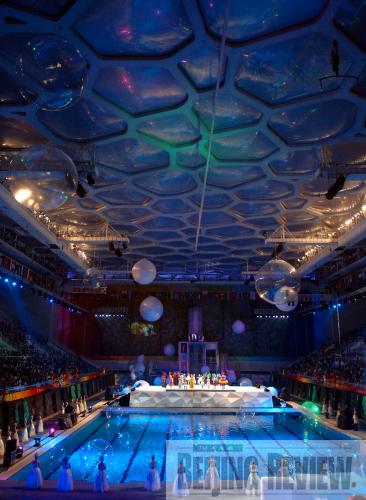|
 |
|
WATERY PRESENTATION: The Beijing Legend, a drama performed by Beijing Children's Art Theater, debuts at the National Aquatics Center on May 28 (GONG LEI) |
One year ago, the 2008 Olympics began in Beijing. The surge of Olympic athletes, judges, staff, and spectators receded after the Games ended and the usual hustle and bustle of China's capital city returned. The Olympic venues, however, remain, though their functions have changed to meet different needs.
The National Aquatics Center, also known as the Water Cube, where Michael Phelps won his record eight gold medals, is one of the two iconic venues from the Games. The National Stadium, also called the Bird's Nest, is the other.
"China was determined to have iconic venues like the Bird's Nest and the Water Cube for their first hosting of the Games, but was also keen to avoid leaving a legacy of unused elephants dotting the city," said Lin Xianpeng, a professor in the School of Management at Beijing Sport University. "International experience reveals that Olympic swimming venues have always been the most difficult to develop after the Games. But the Water Cube is a success."
|
